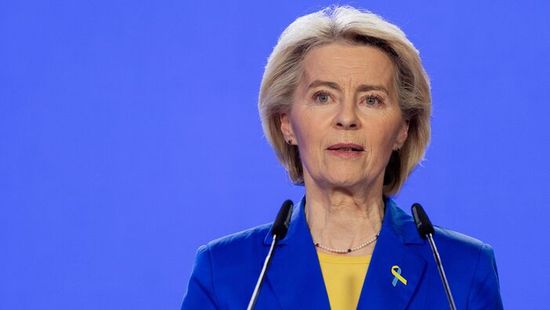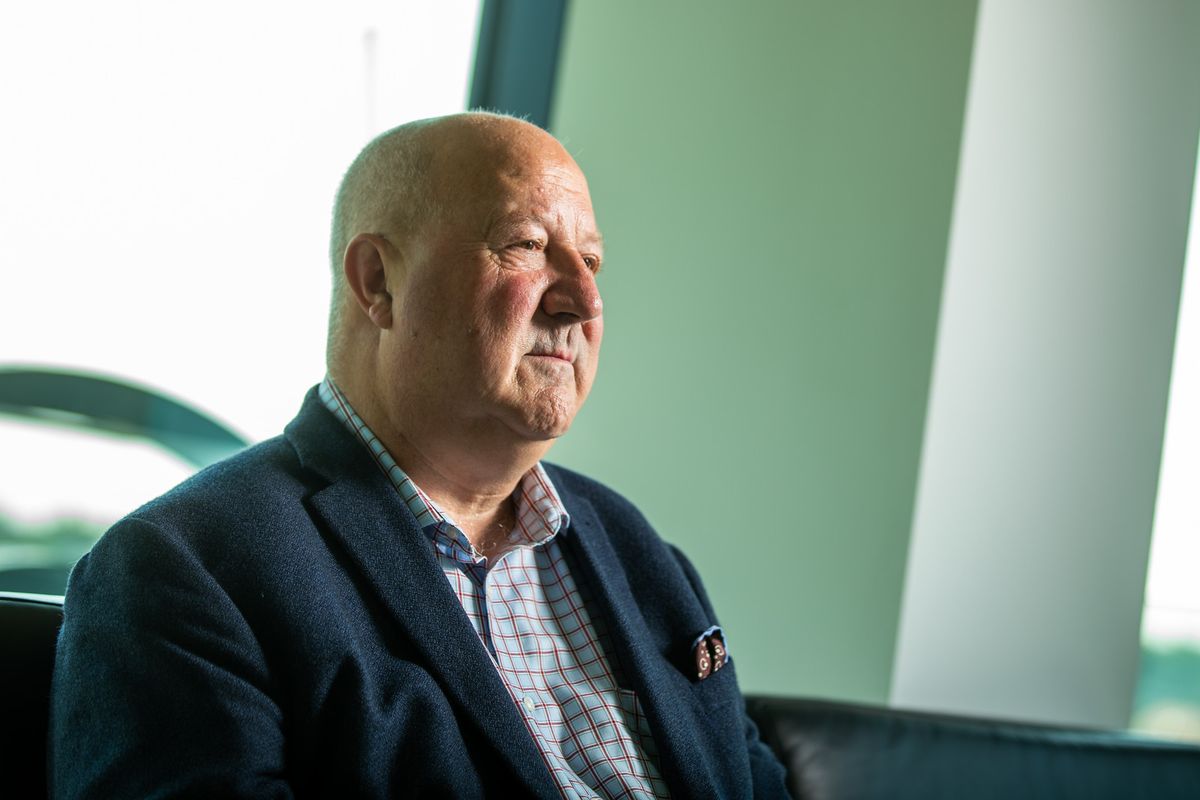Orbán móresre tanította Von der Leyent: megmutatta neki, mire képesek a magyarok (VIDEÓ)

„A szuvereintás jobb üzlet” – jelentette ki a Nézőpont Intézet vezetője.

“Today Reagan would likely broaden the critique to note how democracy is increasingly eroded by what is called “the Administrative State” on both sides of the Atlantic, that is, government and multi-national centers of power that are not directly accountable to voters or individual nations, such as the European Union’s bureaucratic rule-making machinery, or the World Trade Organization. This kind of government degrades national sovereignty and democratic accountability, and threatens self-government itself in the fullness of time.” – Steven Hayward pointed out in a conversation with Lénárd Sándor.



You are the author of the well-known and probably the best available biography of President Reagan. Why in your view was the Reagan presidency significant in America in terms of domestic politics?
Reagan was elected at a moment when America’s fortunes were at low ebb. The British historian Paul Johnson referred to the period of the late 1960s and 1970s as “America’s suicide attempt.” Bad economic policies by several presidents had wrecked the economy, producing high inflation and high unemployment simultaneously, which had been thought impossible by economic orthodoxy up to that point. The prolonged and agonizing defeat in Vietnam left the western anti-Communist alliance demoralized, and the Soviet Union was exploiting this weakness around the world. Public opinion surveys found a majority of Americans were deeply pessimistic about the condition of the country, and its future. There were growing doubts about whether America’s Constitution was obsolete or ill-suited to modern times.
Reagan dissented from the prevailing opinion across the board, but
his ideas for turning the country around were highly unorthodox, even from a conservative point of view.
He embraced the brand new and highly controversial idea of “supply-side” economics, whose central proposal was large cuts in income and capital gains tax rates, which he thought would provide incentives for strong growth. He also backed a disciplined monetary policy to stop inflation, along with slowing the rate of growth in government spending and reforming regulation. He argued that the presidency was not an obsolete or insufficiently powerful office, and believed that America’s future was always certain to be better than its past so long as the American people were truly free to govern themselves.
By the end of his first term in 1984, the American economy was roaring, and public confidence had been restored to levels not seen in more than two decades.
In what sense President Reagan concept and leadership style were different from the other Republican presidents of the era such as President Eisenhower or President Nixon?
Every American president has a unique leadership style. Reagan was something of a paradox:
he was an extremely effective speaker, which is why he was often called “the great communicator,”
and he made a point of constantly promoting his ideas and governing philosophy through his speeches and weekly radio addresses. But he was similar to President Eisenhower (one of his self-admitted models for the presidency, along with Franklin Roosevelt) is believing that a successful president shouldn’t try to do too much in office.
To people in Central-Europe, Ronald Reagan is probably the greatest and most memorable American President because of his impacts on the region. He was the one who managed to overcome the containment doctrine which ultimately led to the collapse of the Soviet Union. I am curious what you revealed about his characters and dilemmas in pursuing this vision.
Reagan differed from other conservatives like Richard Nixon and Henry Kissinger, not to mention American liberals, who thought the Cold War would last another century or longer. Reagan believed that
Soviet Communism was an unnatural (as well as immoral) form of government and social organization,
and as such he believed the Soviet Union was fundamentally weak and unstable at its core, despite its massive armaments that made it a dangerous and powerful country. But he thought the Cold War could be ended, and that the Soviet Union could either change, or go out of existence. And so he deliberately changed the course of American policy by putting stronger political and economic pressure on the Soviet Union. He never thought the Cold War would end as quickly as it did—the most optimistic thought it would be 20 years or more before real change might occur instead of just 10 years, but the Reagan strategy was the crucial turning point.

In what senses did the Reagan presidency turn out to be decisive for the world?
In disrupting the Cold War stalemate and setting the stage for the end of the Soviet empire, he made the liberation of Eastern Europe and the revival of democracy and economic flourishing possible. His promotion of human rights and economic liberty also led to the restoration of democracy in many Latin American nations as well. Other countries in both the developed and developing world followed the lead of Reagan (and also Margaret Thatcher in Britain) with fundamental economic reforms (lower taxes, deregulated markets, lowering of trade barriers) that are today disparaged as “neoliberalism”, though the results in the 1980s and 1990s are hard to assail. Since 1980, over two billion people have been lifted out of poverty around the world from economic growth.
What are the fundamental core values Ronald Reagan pursued during his Presidency and how did he manage to achieve them?
Reagan’s core principle was stated in his 1982 speech in London: “There is a threat posed to human freedom by the enormous power of the modern state. History teaches the dangers of government that overreaches—political control taking precedence over free economic growth, secret police, mindless bureaucracy all combining to stifle individual excellence and personal freedom.” Reagan thought the problem of modern government wasn’t just democracy versus totalitarianism, but that excessive government power existed on a continuum. Individual freedom and a healthy civil society could be undermined just as much by a well-meaning bureaucracy as by the Soviet KGB.
Thus, it was an easy matter for his appointees at executive branch agencies to carry out Reagan’s principles and strategy, as they had only to look up his repeated general statements about favoring individual liberty over government power, along with his many detailed statements about specific policies made over the years in speeches, radio addresses, and newspaper articles.
Few American presidents have ever expressed themselves so comprehensively for so long on key issues,
both before taking office, and during their administrations.
One of the core questions was and still is in America is how to interpret the Constitution. Progressives embrace the vision of the “living constitution” while conservatives prefer “strict construction” or “originalism”. How did the Reagan Presidency impact on constitutional thoughts?
Although Reagan was by no means a profound constitutional scholar, he had read the Federalist Papers, and was familiar with the thought of the American Founders, especially Thomas Jefferson and James Madison. Citing the 10th Amendment, he spoke often about the need to restore federalism, that is, transferring power back to the states and local government that he thought should not be centralized in Washington DC.
The idea of the “living Constitution,” that is, adapting the Constitution’s language and historic doctrines from case law stretching back two centuries to meet “felt needs” of the current moment, is at least 100 years old, but seemed to go into a new and more activist and totally unprincipled phase at the Supreme Court in the 1960s and 1970s, which is why conservatives began an agitation to return initially to “strict construction.”
It was during the Reagan years that the idea of “originalism” took root,
and Reagan’s attorney general, Ed Meese, made a sustained critique of judicial activism and detailed advocacy of constitutional originalism, touching off a long-term controversy among legal academics. This has translated by degrees to the judiciary, with many judges now looking for originalism principles to which to anchor their rulings. “Originalism,” properly understood, it not merely a literal reading the black-and-white text of a statute or constitutional clause, but involves embracing the natural rights philosophy that the Founders had in mind when they wrote the Constitution.

On both sides of the Atlantic people now begin to look into and study the unique American or European way of life. How in your view did President Reagan aspire to preserve and nurture the unique American way of way and its values?
You could say that Reagan believed in “American exceptionalism”—the idea that America is a unique and even providential nation in the Christian or biblical sense of that term. In fact Reagan liked to quote the words of Pope Pius XII from 1946: “Into the hands of America, God has placed the destinies of afflicted mankind.”
One of the things about Soviet Communism that Reagan hated most was its atheism, which he thought was much worse than its socialist economy or its arms buildup.
(It is worth adding here that Reagan was deeply affected by—and opposed to—the Soviet domination of Eastern Europe during the Cold War. He was visibly angry when he saw the Berlin Wall in person for the first time as a private citizen in the late 1970s, telling one of his traveling companions, “We have to bring this down some day.”)
It is impossible to overstate the importance of Reagan’s embrace of the Christian tradition in forming his political views, even if he didn’t talk very much about his own personal faith. At an instinctive level, he understood the connection between human equality in the eyes of God and the equality of human beings under the law. Hence his interest in promoting human rights and democracy around the world where possible.
The point here is that while Reagan believed in the unique position of America, in the end he didn’t think “American values” were unique to America. They were universal, even if not universally recognized or practiced. Like Lincoln, he knew that America enjoyed a privileged position in the world owing both to geography but also its prosperity and ability to welcome people of all national origins into the “American family.” He always hoped that America would be a light to the world—the “shining city on a hill,” in the words of Jonathan Edwards, the famous Puritan preacher from the colonial era—from which other nations and peoples could learn the principles of liberty and the practices of self-government.
I am wondering whether America and the World would need another Ronald Reagan now and if so what would be the message of a Reagan Presidency today?
We can always use another Ronald Reagan! Trouble is, such statesmen are hard to come by. We may need a large dose of Reagan’s economic philosophy if inflation and huge government budget deficits persist, but if another Reagan appeared his broader message would be substantially the same, except with a slightly different frame. In the 1970s and 1980s, Reagan criticized “big government” or excessive bureaucracy chiefly because of its negative effects on liberty and economic health. Today Reagan would likely broaden the critique to note how democracy is increasingly eroded by what is called
“the Administrative State” on both sides of the Atlantic, that is, government and multi-national centers of power that are not directly accountable to voters or individual nations,
such as the European Union’s bureaucratic rule-making machinery, or the World Trade Organization. This kind of government degrades national sovereignty and democratic accountability, and threatens self-government itself in the fullness of time.